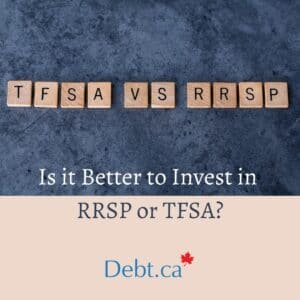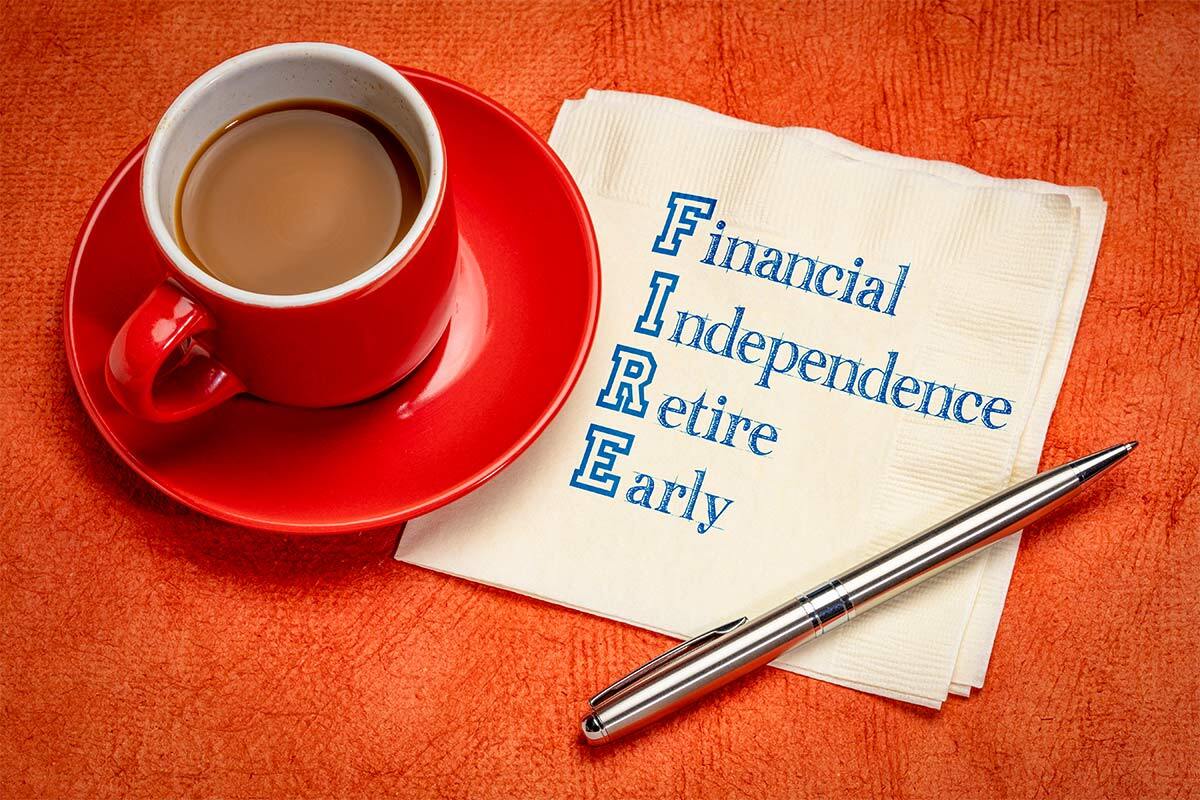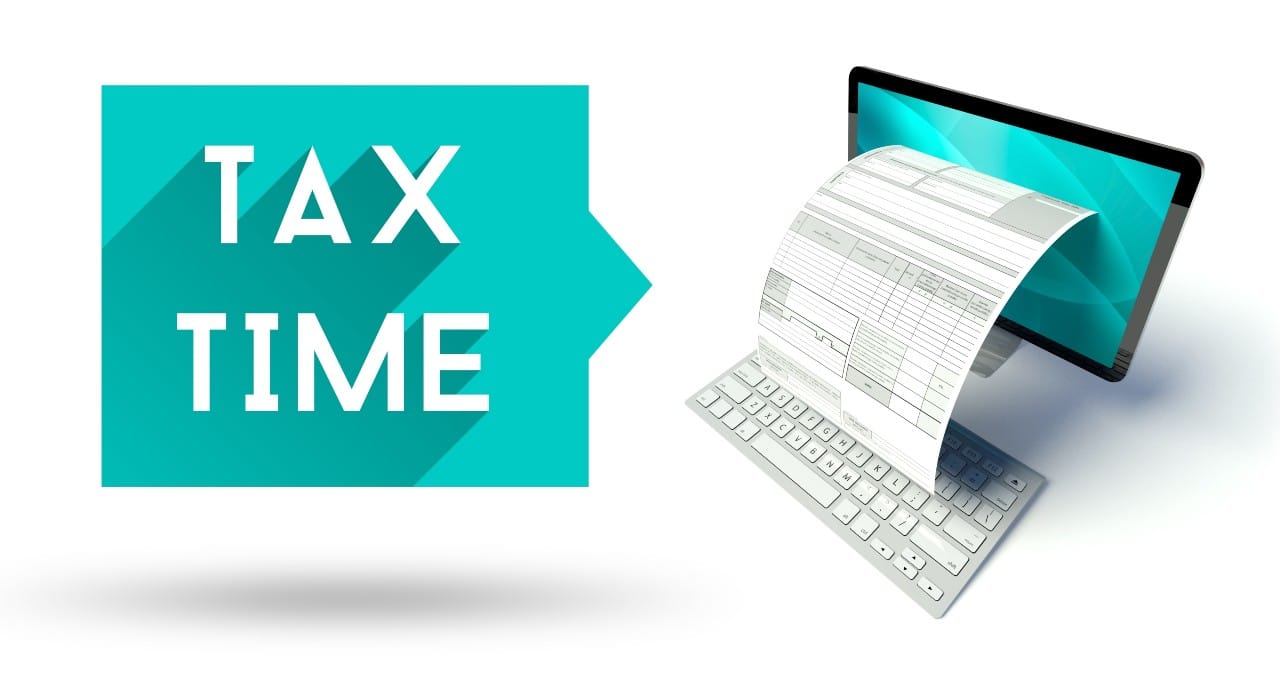Should you invest in your RRSP or pay off debt? This is one of the most common financial decisions faced by Canadian these days. Unfortunately, there isn’t a one size fits all approach. Whether you should invest in your Registered Retirement Savings Plan or pay off debt largely depends on how much debt you have, the interest rate of the debt, your expected rate of return on your RRSP and other factors.
In this article, we’ll look at those factors along with others to help you decide whether you should pay down debt, contribute to your RRSP, or both.
Does It Always Make Sense to Pay Off Your Debt First?
You’ll often hear financial experts recommend that it’s always best to pay off your mortgage debts first and foremost. But is this always the best option for everyone? Not always. You’ll have to look at the advantages and disadvantages of each.
Sometimes it makes sense to invest in your RRSP. In other cases, it makes sense to pay off your household debt.
When Should You Pay Off Your Debts First?
If your plan is to focus on paying off your consumer debts first and then use the cash flow that you free up to invest in your RRSPs, then by all means go for it. By doing this you’ll be debt free sooner and save money on loan interest (especially the high-interest debt) and still have ample time to invest in your RRSP. However, this is often easier said than done.
Although that may be the game plan, many of us have a tough time investing our freed-up cash flow. Oftentimes we choose to spend it instead. It’s important to really have a good idea about yourself and how financially disciplined you are before putting a plan in place.
The decision of whether or not to pay down debt isn’t just a dollars and cents exercise. There’s also a psychological component to it.
The Psychological Aspect of Money Management
Determining to invest in your RRSP or pay off debt isn’t always a logical decision. Sometimes, paying down your debt can be the best choice simply because the amount of debt that you have is causing you a lot of stress and anxiety. If that’s the case, then debt repayment should be your main focus. Once you figure out a plan where you can have your debts paid off sooner, you’ll likely feel a whole lot better.
Likewise, once your debts are actually paid off, you’ll probably feel even better. You can then switch up your strategy to invest, without worrying about carrying around any debt.
When weighing this decision, you should also take the interest rates you’re paying on any debt into account. If the interest rate on your debt is greater than the expected rate of return on your RRSP, then it makes sense to pay down your debt first.
If you’re dealing with low-interest-rate debt, such as a line of credit or mortgage, you might have to crunch some numbers to see if paying it down first makes sense. However, if it’s high-interest debt that you’re dealing with, such as credit card debt, then paying it down first will almost always be the correct answer.
(Even if you’re paying little to no interest due to a promotional interest rate or balance transfer, it can still make sense to pay down your debts first since that low-interest rate won’t last forever.)
What’s your risk tolerance?
If you’re risk-averse, paying down debt may be the way to go. When you pay down debt, it’s a guaranteed rate of return. For example, let’s say the interest rate on your credit card is 19 percent.
By paying down the outstanding balance on your credit card, you’re getting the equivalent of a 19 percent return. Good luck finding a return like that from your RRSP!
If you have a lot of high-interest debt, you might consider cashing in an RRSP. However, this usually doesn’t make sense. Using your RRSP to pay debt can prove to be quite costly. This should only be done as a last resort if you’re struggling to make the minimum payments.
It makes sense to take money from your Tax-Free Savings Account first before your RRSP. It’s a good idea to consult with a financial professional before doing this.
When is it a Good Idea to Focus on Investing in Your RRSP?
If the only debt you have is at a low-interest rate (i.e. a mortgage or line of credit), the rate of return on your RRSP will more often than not be higher than the interest rate on your debt. In this instance, simply put you’ll get more out of contributing to your RRSP than you’d lose by not paying down your debt. (Of course, you’ll want to make at least the minimum payment to keep your credit history in good standing.)
On top of that, you get a tax deduction for RRSP contributions. That’s because you can deduct the amount you contribute to your RRSP from your taxable income. This results in your taxable income being reduced and having less income tax to pay to the Canada Revenue Agency come tax time. I
If you invest a sizable chunk of money into your RRSP each year, you could actually use your tax refund towards paying off your debts. The higher your tax bracket, the more beneficial it is to contribute to your RRSP.
If you have a lot of credit cards or other high-interest debt, it probably makes sense to forgo contributing to your RRSP for the time being. If you’re unsure about what to do, it’s best to put some thought into it. Run the numbers to see which decision makes sense. If you need to, enlist the services of an independent third party, such as a financial planner or sign up for credit counselling.
Speak to Financial Professionals
If you are struggling with paying off your debt or investing in your RRSP, Debt.ca can help you! Our financial advisors will discuss with you the best outcome for your short-term and long-term financial priorities. Once you have all the information laid out in front of you, it should be a lot easier to decide what the best decision for you is.









